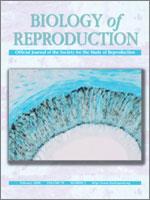Poor maternal nutrition during pregnancy can alter postnatal phenotype and increase susceptibility to adult cardiovascular and metabolic diseases. However, underlying mechanisms are largely unknown. Here, we show that maternal low protein diet (LPD), fed exclusively during mouse preimplantation development, leads to offspring with increased weight from birth, sustained hypertension, and abnormal anxiety-related behavior, especially in females. These adverse outcomes were interrelated with increased perinatal weight being predictive of later adult overweight and hypertension. Embryo transfer experiments revealed that the increase in perinatal weight was induced within blastocysts responding to preimplantation LPD, independent of subsequent maternal environment during later pregnancy. We further identified the embryo-derived visceral yolk sac endoderm (VYSE) as one mediator of this response. VYSE contributes to fetal growth through endocytosis of maternal proteins, mainly via the multiligand megalin (LRP2) receptor and supply of liberated amino acids. Thus, LPD maintained throughout gestation stimulated VYSE nutrient transport capacity and megalin expression in late pregnancy, with enhanced megalin expression evident even when LPD was limited to the preimplantation period. Our results demonstrate that in a nutrient-restricted environment, the preimplantation embryo activates physiological mechanisms of developmental plasticity to stablize conceptus growth and enhance postnatal fitness. However, activation of such responses may also lead to adult excess growth and cardiovascular and behavioral diseases.
How to translate text using browser tools
1 February 2008
Adaptive Responses by Mouse Early Embryos to Maternal Diet Protect Fetal Growth but Predispose to Adult Onset Disease
Adam J. Watkins,
Elizabeth Ursell,
Rose Panton,
Thomas Papenbrock,
Lisa Hollis,
Colm Cunningham,
Adrian Wilkins,
V. Hugh Perry,
Bhavwanti Sheth,
Wing Yee Kwong,
Judith J. Eckert,
Arthur E. Wild,
Mark A. Hanson,
Clive Osmond,
Tom P. Fleming
ACCESS THE FULL ARTICLE

Biology of Reproduction
Vol. 78 • No. 2
February 2008
Vol. 78 • No. 2
February 2008
behavior
blastocyst
blood pressure
conceptus
developmental biology
embryo
environment




